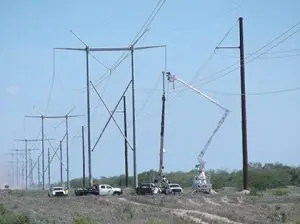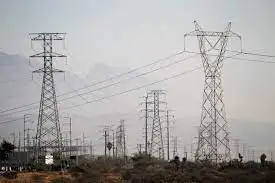Underground alternative: Some say Dane County power line should be buried
American Transmission Co. of Pewaukee wants to begin operating the line by 2013 to help the fast-growing Madison area keep up with rising demand for electricity. Concerns about the line prompted the mayor of Madison, the head of the University of Wisconsin-Madison Arboretum and the Public Service Commission to urge that the company study the possibility of burying the line in key stretches. American Transmission Co. on announced that its research shows that burying the line would cost four to six times as much as a traditional overhead line, and that it would oppose burying the line.
ATC spent $300,000 on the study, which also said a buried line would have to wind under city and suburban streets rather than follow the Beltline highway. Burying the line would cost $128 million for a 6-mile stretch in Madison and the Town of Madison that includes the arboretum and a key redevelopment zone planned by the city. That compares with a $20 million cost projection for that stretch if it were built above ground.
Underground lines are being built more and more in major cities, but there is no precedent for doing so in Wisconsin, said Mark Williamson, vice president of major projects at ATC.
The company believes an underground line would be more difficult to operate and much more challenging to re-activate in the case of a power-line failure. "It's like paying a premium for a high-end coffee maker that makes worse coffee than a more economical model," he said. But George Twigg, a spokesman for Madison Mayor Dave Cieslewicz, said ATC's study was incomplete and didn't address the city's concerns. "What we were looking for was an analysis of undergrounding along the Beltline," he said. ATC's plan instead proposes "undergrounding through every significant neighborhood on the west side of Madison.
That wasn't the question we were trying to get answered." Twigg said the ATC analysis validates the call by the mayor, Dane County Executive Kathleen Falk and others for an independent analysis of the Dane County power-line project. Utility engineers evaluated the possibility of using the Beltline itself for an underground line, but concerns raised by state transportation officials about closing parts of the highway during construction and the steep slope in parts of the Beltline m de building it under the highway "impractical," Williamson said. Concern for arboretum Kevin McSweeney, executive director of the UW-Madison Arboretum, said the 110-foot towers for an overhead line would rise above the tree line at the arboretum.
The city should follow the lead of Boston, San Diego and other cities that have buried high-voltage power lines, he said. McSweeney is concerned about the aesthetics of having the arboretum, already bisected by the Beltine highway, crossed by the power line as well. The arboretum, once led by noted Wisconsin conservationist Aldo Leopold, "is the birthplace of restoration ecology, the science of putting damaged lands back together. So there's a sort of historic (importance), and from a scientific standpoint this is a place that enjoys a global significance," he said. Williamson said cost estimates for two of four areas being studied by ATC aren't yet complete.
A 3.5-mile stretch in Madison and the city of Monona would cost $76.5 million, instead of $17 million for the overhead route. "Why would we have people pay to underground this when you have something that works better and it's less intrusive and costs a lot less - on a highway like everyone else has it?" Williamson said. ATC has scheduled public meetings for June 11-13 in Fitchburg, Madison and Middleton to meet with residents near the route for the underground alternative. Williamson said he expected hundreds to show up and voice opposition to what he termed the "crazy idea" of burying the power line.
The transmission utility, formed seven years ago by state law, is charged with building, operating and maintaining the state's network of major power lines, which in essence serve as the highways for transporting power around the state. The utility has proposed building a major power line across Dane County to help the fast-growing Madison area keep up with rising demand for electricity and to help the city import enough power after Madison Gas & Electric Co. shuts down its coal-fired power plant in downtown Madison in 2012. But ATC, which faced years of opposition to its power line under construction in northwestern Wisconsin, has seen the timetable for the Dane County project pushed back as opposition groups and elected officials have raised questions about the line.
The company will announce in late July its two main overhead alternatives for the project, which would stretch from 32 to 55 miles and cost $154 million to $187 million. Williamson said that in winnowing the three alternatives unveiled a year ago, ATC could propose a modified route that avoids using the Beltline highway near the arboretum and a Beltline business redevelopment district that is a priority for Cieslewicz.
Related News

Hitachi freezes British nuclear project, books $2.8bn hit
TOKYO - Japan’s Hitachi Ltd said on Thursday it has decided to freeze a 3 trillion yen ($28 billion) British nuclear power project and will consequently book a write down of 300 billion yen.
The suspension comes as Hitachi’s Horizon Nuclear Power failed to find private investors for its plans to build a plant in Anglesey, Wales, which promised to provide about 6 percent of Britain’s electricity.
“We’ve made the decision to freeze the project from the economic standpoint as a private company,” Hitachi said in a statement.
Hitachi had called on the British government to boost financial support for the project to…





